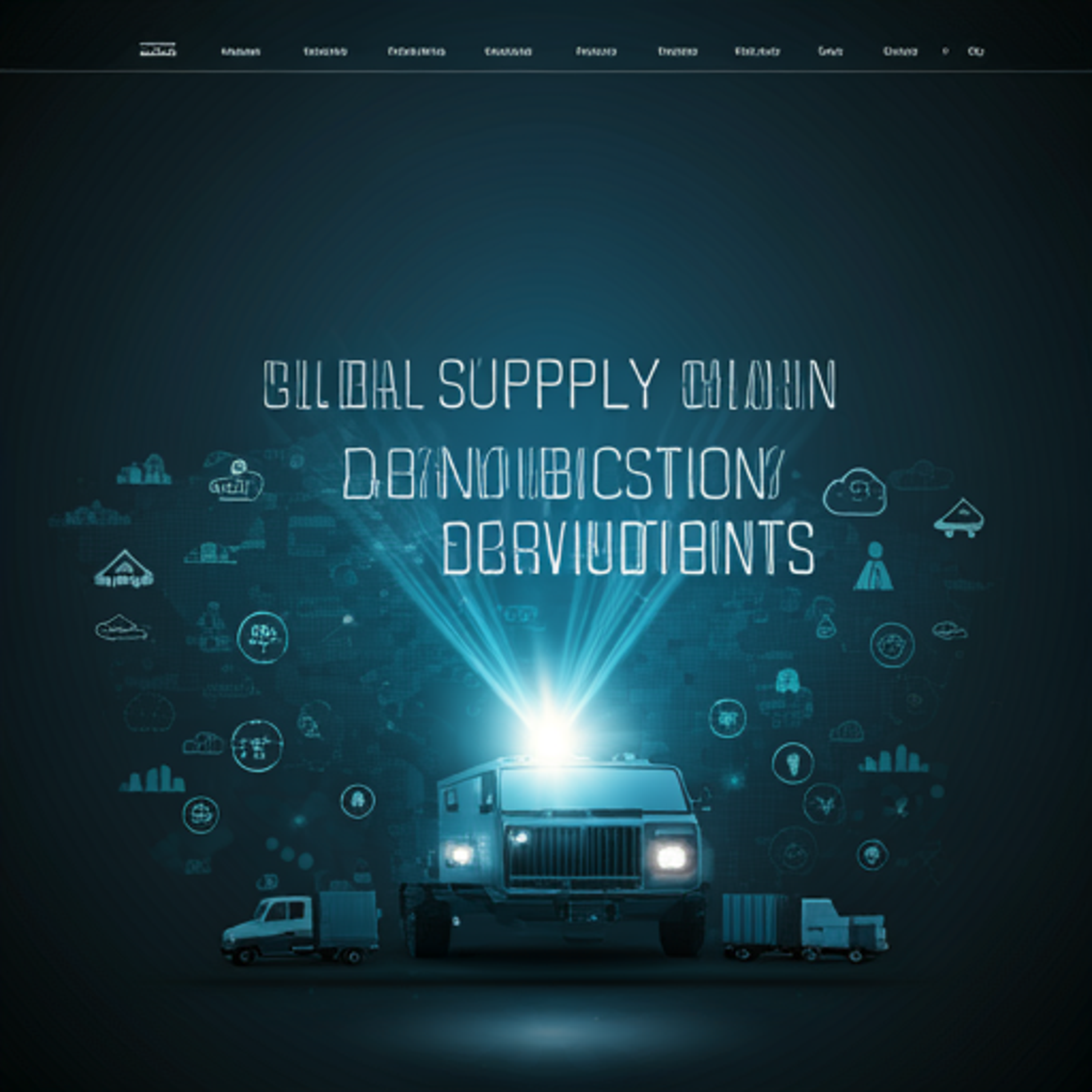Introduction to Global Supply Chain Disruptions
Overview of Supply Chain Dynamics
Global supply chain disruptions have become increasingly prevalent due to various factors, including geopolitical tensions and natural disasters. These events can significantly impact the flow of goods and services. Businesses must adapt to these challenges to maintain operational efficiency. It is crucial to understand the underlying dynamics. Supply chains are complex networks that require careful management. Effective strategies can mitigate risks. This is essential for long-term success.
Recent Events Impacting Supply Chains
Recent geopolitical tensions and the COVID-19 pandemic have severely disrupted global supply chains. These disruptions have led to increased costs and delays. Companies are now facing unprecedented challenges in logistics. This situation demands immediate attention. Adaptation is crucial for survival.
The Role of Cryptocurrency in Supply Chains
How Cryptocurrency Facilitates Transactions
Cryptocurrency streamlines transactions by providing a decentralized payment method. This reduces reliance on traditional banking systems. Consequently, businesses can execute cross-border payments more efficiently. Speed is essential in today’s market. Additionally, lower transaction fees enhance profitability. This is a significant advantage for companies.
Smart Contracts and Supply Chain Efficiency
Smart contracts enhance supply chain efficiency by automating processes. They execute predefined conditions without intermediaries. This reduces delays and errors significantly. Efficiency is crucial for maintaining competitiveness. Key benefits include:
These factors contribute to smoother operations. Businesses can respond quickly to changes. This agility is vital in today’s market.
Impacts of Disruptions on Businesses
Financial Implications for Companies
Disruptions in supply chains can lead to significant financial implications for companies. Increased operational costs often arise from delays and inefficiencies. This can strain gain margins. Companies may also face cash flow challenges. Key impacts include:
These factors can hinder long-term growth. Companies must adapt quickly. This is essential for sustainability.
Operational Challenges and Adaptations
Operational challenges arise from supply chain disruptions, necessitating swift adaptations. Companies often encounter resource shortages and logistical inefficiencies. These issues can compromise service delivery. Immediate action is required. Effective strategies include diversifying suppliers and enhancing inventory management. This approach mitigates risks. Adaptation is crucial for resilience.
Case Studies of Affected Industries
Manufacturing Sector Challenges
The manufacturing sector faces significant cjallenges due to supply chain disruptions. These issues often result in production delays and increased costs. Companies struggle to maintain efficiency. Immediate solutions are necessary . Implementing advanced technologies can streamline operations. This is a vital step forward. Adaptation is essential for survival.
Retail and E-commerce Disruptions
Retail and e-commerce disruptions have significantly impacted consumer behavior and sales. Many companies face inventory shortages and delivery delays. This affects customer satisfaction. Key challenges include:
Businesses must adapt quickly to these changes. Agility is crucial for success. Companies need innovative solutions.
Adoption of Blockchain Technology
Enhancing Transparency and Traceability
Adopting blockchain technology enhances transparency and traceability in supply chains. This innovation allows for real-time tracking of products. Companies can verify the authenticity of goods. Increased visibility reduces fraud risks. Key benefits include:
These factors foster trust among stakeholders. Trust is essential for collaboration. Companies must embrace this technology.
Reducing Fraud and Errors in Supply Chains
Adopting blockchain technology significantly reduces fraud and errors in supply chains. This system ensures data integrity through decentralized records. Companies can track transactions accurately. Enhanced verification processes are crucial. This fosters accountability among participants. Trust is vital in business.
Future Trends in Supply Chain Management
Emerging Technologies and Innovations
Emerging technologies are reshaping supply chain management. Innovations such as artificial intelligence and IoT enhance efficiency. These tools enable predictive analytics and real-time monitoring. Companies can optimize inventory levels effectively. Key trends include:
These advandements drive competitiveness. Agility is essential for success.
Predictions for Cryptocurrency Integration
Predictions indicate increased cryptocurrency integration in supply chains. This shift may enhance transaction efficiency and reduce costs. Companies can benefit from faster payments. Key predictions include:
These trends will reshape financial operations. Adaptation is crucial for competitiveness. Companies should prepare for change.
Strategies for Businesses to Mitigate Risks
Diversifying Supply Sources
Diversifying supply sources is essential for risk mitigation. This strategy reduces dependency on single suppliers. Companies can enhance resilience through multiple partnerships. Key strategies include:
These actions improve supply chain stableness. Stability is vital for operations. Companies must act proactively.
Investing in Technology and Infrastructure
Investing in technology and infrastructure is crucial for risk mitigation. Advanced systems enhance operational efficiency and data management. Companies can streamline processes through automation. This reduces human error significantly. Key investments include:
These improvements foster resilience in supply chains. Resilience is essential for growth. Companies should prioritize these investments.
Conclusion: The Path Forward
Long-term Implications for Global Trade
Long-term implications for global trade include shifts in supply chain dynamics. Companies must adapt to changing market conditions. This requires strategic planning and investment. Enhanced collaboration among stakeholders is essential. Key considerations include:
These factors will shape future trade landscapes. Adaptation is crucial for success. Companies should remain proactive.
The Role of Cryptocurrency in Future Resilience
Cryptocurrency plays a vital role in enhancing future resilience. It offers decentralized financial solutions that reduce dependency on traditional systems. This flexibility can mitigate risks during disruptions. Key benefits include:
These advantages foster greater adaptability. Adaptability is essential for growth . Companies should explore these options.
